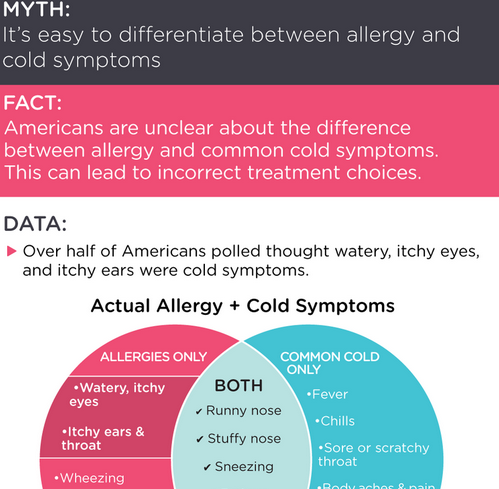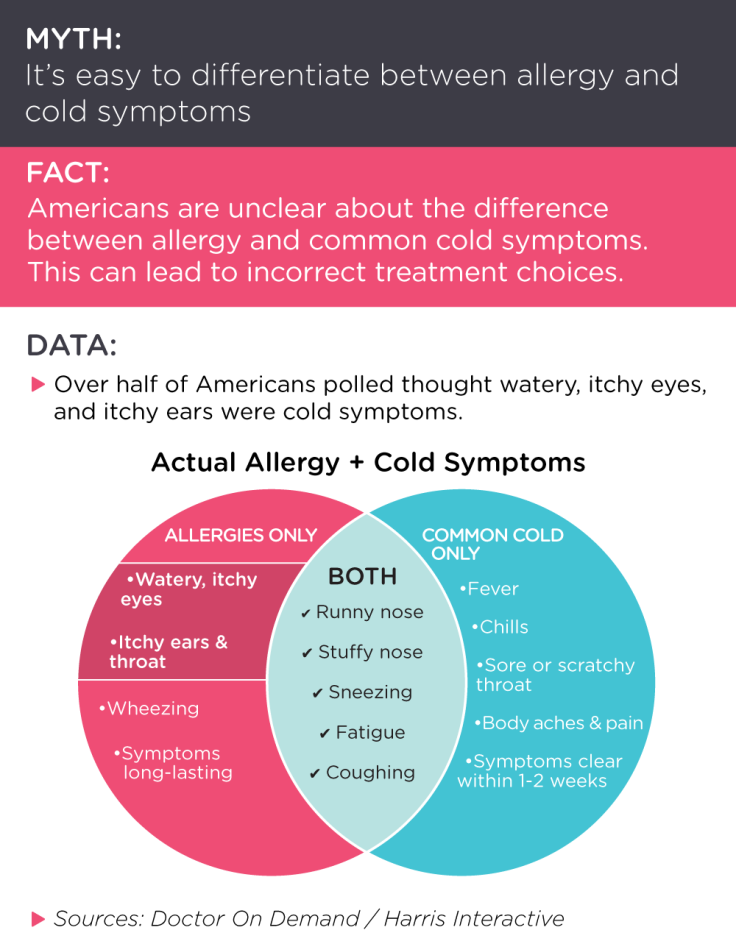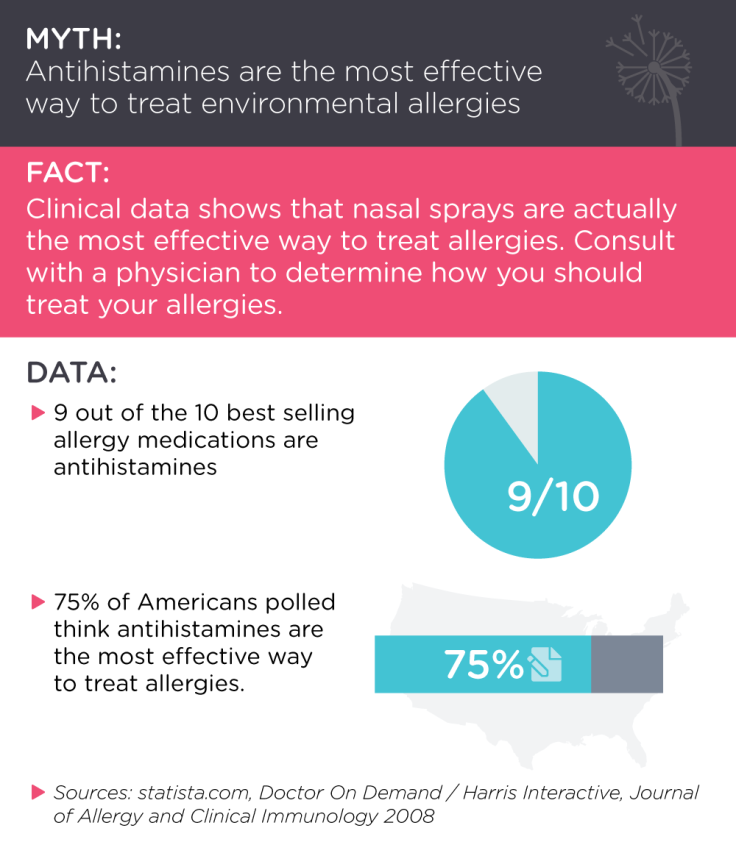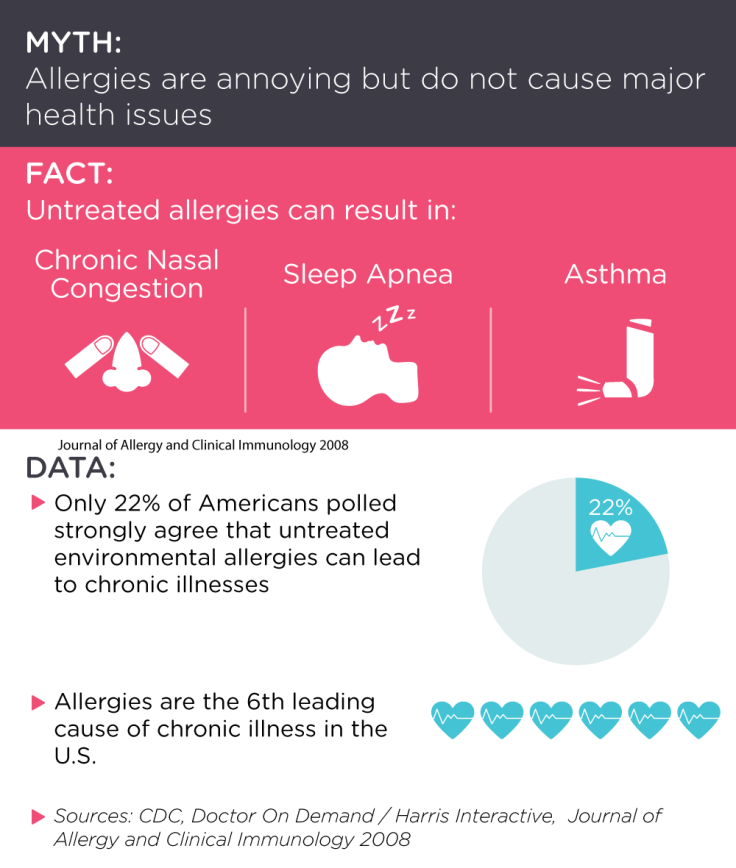Common Cold vs. Seasonal Allergies: How To Tell The Difference And Treat The Symptoms

The arrival of spring means warmer weather, greenery, and inevitably — seasonal allergies. The fluctuation of temperatures during the transition from winter to spring means the overlap of colds and allergies. With more than 50 million Americans suffering from environmental allergies and over one billion colds annually, how do you tell the difference between the two?
Typically, since colds and allergies share similar symptoms and treatments, it’s hard to spot the difference. Unlike allergies, the common cold is caused by a virus, while allergy symptoms are a result of immune system responses to allergens like pollen, dust, or even pet dander, says the Mayo Clinic. However, it’s difficult to tell the difference between the two when symptoms first strike.
A survey conducted by Doctor On Demand in partnership with Harris Interactive found Americans are unclear when it comes to differentiating between allergy and common cold symptoms. Over half of Americans polled thought telltale allergy symptoms, such as watery, itchy eyes, and itchy ears and throat were also cold symptoms. However, cold and seasonal allergy symptoms that do overlap include a runny nose, stuffy nose, sneezing, fatigue, and coughing.
The best way to make a distinction between the two is the duration of the symptoms. A common cold lasts no longer than 10 days, while allergies can pester people for months. Moreover, seasonal allergies tend to bloom at the same time every year, while colds are more prominent between winter and fall.
If you want to tackle both, decongestant nasal sprays alleviate both cold and allergy symptoms. These sprays can help those with colds breathe better while also treating a swollen, congested nasal passage, without causing symptoms such as insomnia. Although nasal sprays are considered to be the most effective way to treat environmental allergies, Doctor On Demand found only one in four Americans surveyed knows that antihistamines like Claritin and Benadryl are not the best remedies for environmental allergies.
While cold and allergy symptoms may overlap, they should be treated accordingly based on your diagnosis. Look at Doctor on Demand’s infographic below to see more differences between symptoms, treatments, and how untreated allergies can lead to chronic illness.






























